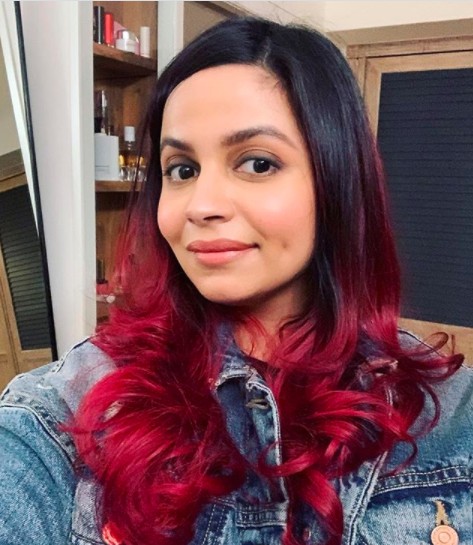
The pandemic has given way to increased conversations on mental health, something that has never happened before. Despite that, there is a certain stigma attached to it—people feel expressing their vulnerability in public or taking therapy is a sign of weakness. And we have a long way to go before society views mental health in the same light as having physical ailments.
But there are some celebrities like Shaheen Bhatt, Bollywood actor Alia Bhatt’s sister and a columnist with HT Brunch , who are helping change the narrative around mental health, by sharing their personal experiences. Her book, I’ve Never Been (Un)Happier gives readers an honest account of her battle with depression since she was a teenager.
In this exclusive conversation with Health Shots, Shaheen speaks about how shame is a prevalent part of mental illnesses, significance of the use of ‘correct vocabulary’ with regard to mental health, and how depression assumes a different meaning for different people.
“I think it’s very important for not just public figures to have conversations about mental health, but anyone in a sort of a perceived position of hierarchy. So, even if you work in a corporate, it’s very important for CEOs, managers, any senior members of a corporate environment to actually talk about these things. Because that’s how other people realise that they are not going to lose anything by making these conversations. It opens conversations up, and makes you realise
that people who have achieved certain societal ideals of success deal with their own stuff and it’s quite similar with public figures,” shares Shaheen.
The only difference with public figures, according to Shaheen, is that they have a platform and a larger reach, which really opens up an arena for conversations.
“It also helps others realise that it doesn’t really matter, where you are in your life. Everyone deals with things like this from time to time. It’s just basically a way to amplify a conversation that really needs to be had,” she adds.
A supportive network always helps, especially when someone is dealing with a mental illness. Shaheen considers herself “extremely lucky” for having received all the support from her friends and close family.

“It makes you feel that you can talk about the things that are going on with you, without a sense of shame. Despite having that, I still had shame. Shame is a prevalent part of mental illness and having a supportive network around you helps you hack away at that sense of shame,” says Shaheen.
She feels people must be empathetic, and particularly so, when dealing with someone who suffers from a mental illness.
Select Topics of your interest and let us customize your feed.
PERSONALISE NOW“I keep coming back to this quote: ‘be gentle, everyone is at war’. Everyone is dealing with their own internal, private struggles and situations that they have to manage on a day-to-day basis, and you don’t know what people are going through.
Very often, especially the world we live in, everything is so airbrushed, social media contributes so much so much to that. So, empathy is not just important in the case of mental health. In the case of mental health, it is doubly important, but in general I think that’s the only thing that I feel defines humanity,” adds Shaheen.
“I think the language about mental health is something we need to pay attention to. When I was younger, before I had gotten diagnosed, before I knew what depression really was, I would use the term depression interchangeably with sadness. For instance, ‘I am so depressed that my favourite show got canceled, or ‘I am so depressed that I ruined my dress.’
It’s the kind of thing you throw around, because you don’t understand the gravitas of what depression means. Having said that, I am glad people are taking notice of the word and these concepts, because at least when these concepts as vocabulary are out and about, we can start to have conversations around them. I just think we need to be a little aware of the language we use around mental health as a whole,” says Shaheen.
Shaheen feels that taking care of mental health is not all about having that one strategy, but an ongoing day-to-day process. There’s really no one way to deal with mental health!
Also, watch:
“The one thing I have realised in dealing with mental health issues is that my emotional state is a very dynamic one, even my experience of depression will change from one month to a couple of months later. So it’s not like my depression and symptoms necessarily stay the same. I tweak how I deal with my mental health based on what I am feeling, and how I am feeling. I am on regular medication, which personally for me has been very helpful. I am in regular therapy, and I have been having my sessions for a couple of years now,” she shares.
Shaheen tries to get some exercise whenever she can, because it makes a huge difference. The bad spells are much fewer and much further apart when you work out, she says. But if there’s one thing she believes in more than anything else it’s to not beat herself up, even if she has bad days.
“I allow myself bad days, and I am very privileged to have the luxury to be able to sit with those feelings, so I allow myself that. All I have really tried to do is inculcate a sense of awareness of where I am at and push myself when I need pushing, and be kind and leave myself alone, when I need to,” she says.
Shaheen feels social media is a very invasive part of our lives, and takes a lot out of us, even if we don’t realise. “If you have seen Social Dilemma or how social media really operates, the entire principal of social media is to basically make you feel like there’s something that you don’t have in your life, there’s something lacking that if you had, you would be fine and if you add to that, there are general voices, negative voices, unkind voices, snide voices, and all that gets too much sometimes.
Imagine 20 years ago, if someone somewhere was saying something bad in the world, it would have not immediately come to your phone, but now it’s there,” she says.
“I don’t sit there, post a picture and see how many likes I have got one hour later. That’s a cycle I have completely cut off. While it’s lovely when people are nice, kind and positive, I am truly grateful for that, but I can’t take that too seriously. I can’t take those kind words so seriously, so i don’t take the hate so seriously. To me, it’s like voices screaming into a void,” explains Shaheen.

“The pandemic has been really strange for everyone, we are all just playing it by the ear and taking each day as it comes. I don’t think anyone has a plan, I don’t think any of us had a plan of how to deal with this, and it’s like you can make a plan but the situation has been so volatile and dynamic that you can’t really stick to it, so I have dealt with my mental health and lockdown just like I deal with my mental health in general,” says Shaheen.
She recognises that her mental health is different on different days, and has been practicing self-care to feel good.
“Some days of the lockdown, I have been really positive and happy to be home, and spend time with my family, and other days I have been practically rudderless and feeling completely hopeless. I have been paying attention to how I feel and practicing self care, and doing things for myself that make me feel good, which is all we can really do right now,” adds Shaheen.
“Depression is completely different for every single person who experiences it, so my experience will be completely different from someone else’s. If you put a hundred people in a room who have depression, every single one of them will have different reasons for why they are depressed, they will have different symptoms, different ways in which it shows up—so there’s no one way to deal with it.
Make sure you arm yourself with as much knowledge about what you are dealing with, read about depression, read about the symptoms, read about the things that you can do to make yourself feel better. If therapy is an option, seek professional help, if you think you might be depressed,” says Shaheen.
Depression convinces you that you are alone in this, and no one else has felt what you’re feeling, but it’s important to remember it’s all a lie, says Shaheen.
“I think intellectually we know we are not alone, we can’t possibly be alone in what we are feeling, but on an emotional level, it’s not something you really realise. The way to challenge that lie is to talk about it, and talk to people because once you do, you will realise that other people are going through what you are, and the way to help you out of it is to share that experience and help yourself through it with the help of others,” says Shaheen, signing off.